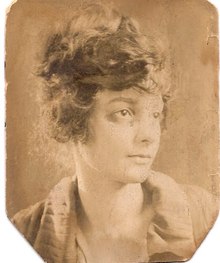 W
WRegina M. Anderson was an American playwright and librarian. She was of Native American, Jewish, East Indian, Swedish, and other European ancestry ; one of her grandparents was of African descent, born in Madagascar. Despite her own identification of her race as "American", she was perceived to be African-American by others. Influenced by Ida B. Wells and the lack of black history teachings in school, Regina became a key member of the Harlem Renaissance.
 W
WLester Eugene Asheim was an American librarian and scholar of library science. He was on the faculty of the University of Chicago and the University of North Carolina and held positions in the American Library Association (ALA). He was included among the "100 most important leaders we had in the 20th century" by the American Library Association.
 W
WHannah Diggs Atkins was a member of the Oklahoma House of Representatives from 1968 to 1980, and the first African-American woman elected to it. She was later appointed to the simultaneous positions of Secretary of State of Oklahoma and Secretary of Social Services, establishing her as the highest ranked female in Oklahoma state government until she retired in 1991.
 W
WPatricia Swift Blalock was an American librarian, social worker, and civil rights activist born in Gadsden, Alabama.
 W
WThe Boston Public Library is the municipal public library system in Boston, Massachusetts, United States, founded in 1848. The Boston Public Library is also the Library for the Commonwealth of the Commonwealth of Massachusetts; all adult residents of the commonwealth are entitled to borrowing and research privileges, and the library receives state funding. The Boston Public Library contains approximately 24 million volumes, and electronic resources, making it the third largest public library in the United States, behind the federal Library of Congress and the New York Public Library, which is also privately endowed. In fiscal year 2014, the library held more than 10,000 programs, all free to the public, and lent 3.7 million materials.
 W
WClara Estelle Breed was a librarian in San Diego, California, remembered chiefly for her support for Japanese American children during World War II. After the attack on Pearl Harbor on December 7, 1941, many residents of California who were of Japanese descent were moved to remote Japanese American internment camps where they stayed until the end of the war. Breed kept in communication with many of the children who were sent to the camps, sending reading materials and visiting them regularly.
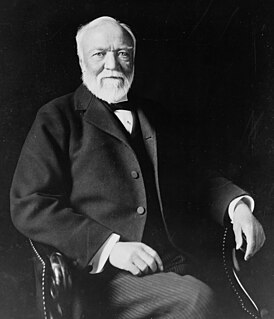 W
WAndrew Carnegie was a Scottish-American industrialist and philanthropist. Carnegie led the expansion of the American steel industry in the late 19th century and became one of the richest Americans in history. He became a leading philanthropist in the United States and in the British Empire. During the last 18 years of his life, he gave away $350 million to charities, foundations, and universities – almost 90 percent of his fortune. His 1889 article proclaiming "The Gospel of Wealth" called on the rich to use their wealth to improve society, and stimulated a wave of philanthropy.
 W
WThe Chicago Public Library (CPL) is the public library system that serves the City of Chicago in the U.S. state of Illinois. It consists of 80 locations, including a central library, two regional libraries, and branches distributed throughout the city's 77 Community Areas.
 W
WJohn Doe v. Alberto R. Gonzales was a case in which the American Civil Liberties Union (ACLU), Library Connection, and several then-pseudonymous librarians, challenged Section 2709 of the Patriot Act; it was consolidated on appeal with a separate case, Doe v. Ashcroft.
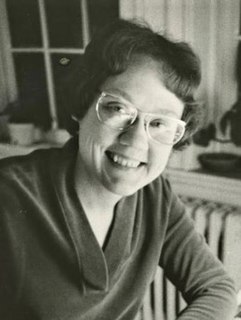 W
WBarbara Gittings was a prominent American activist for LGBT equality. She organized the New York chapter of the Daughters of Bilitis (DOB) from 1958 to 1963, edited the national DOB magazine The Ladder from 1963–66, and worked closely with Frank Kameny in the 1960s on the first picket lines that brought attention to the ban on employment of gay people by the largest employer in the US at that time: the United States government. Her early experiences with trying to learn more about lesbianism fueled her lifetime work with libraries. In the 1970s, Gittings was most involved in the American Library Association, especially its gay caucus, the first such in a professional organization, in order to promote positive literature about homosexuality in libraries. She was a part of the movement to get the American Psychiatric Association to drop homosexuality as a mental illness in 1972. Her self-described life mission was to tear away the "shroud of invisibility" related to homosexuality, which had theretofore been associated with crime and mental illness.
 W
WZoia Markovna Horn, born in Ukraine, became in 1972 the first United States librarian to be jailed for refusing to share information as a matter of conscience. Horn, an outspoken member of the American Library Association's Intellectual Freedom Committee, worked at Bucknell University in Lewisburg, Pennsylvania in the early 1970s. Horn was jailed for nearly three weeks for contempt of court after refusing to testify for the prosecution in the 1972 conspiracy trial of the "Harrisburg Seven" anti-war activists.
 W
WAgnes Inglis (1870–1952) was a Detroit, Michigan-born anarchist who became the primary architect of the Labadie Collection at the University of Michigan.
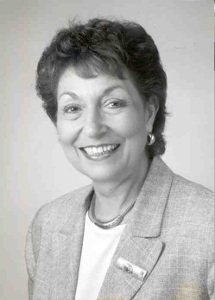 W
WJudith Fingeret Krug was an American librarian, freedom of speech proponent, and critic of censorship. Krug became director of the Office for Intellectual Freedom at the American Library Association in 1967. In 1969, she joined the Freedom to Read Foundation as its executive director. Krug co-founded Banned Books Week in 1982.
 W
WStanley Jasspon Kunitz was an American poet. He was appointed Poet Laureate Consultant in Poetry to the Library of Congress twice, first in 1974 and then again in 2000.
 W
WThe Library Freedom Project teaches librarians about surveillance threats, privacy rights, and digital tools to thwart surveillance. In 2015 the Project began an endeavour to place relays and, particularly, exit nodes of the Tor anonymity network in public libraries.
 W
WLibrary Journal is an American trade publication for librarians. It was founded in 1876 by Melvil Dewey. It reports news about the library world, emphasizing public libraries, and offers feature articles about aspects of professional practice. It also reviews library-related materials and equipment. Each year since 2008, the Journal has assessed public libraries and awarded stars in their Star Libraries program.
 W
WThe Library Services and Construction Act, enacted in 1964 by the U.S. Congress, provides federal assistance to libraries in the United States for the purpose of improving or implementing library services or undertaking construction projects.
 W
WAlison Macrina is a librarian, internet activist, founder and executive director of the Library Freedom Project. Macrina is vocal in her opposition to digital surveillance, and was a core contributor and Community Team Lead on the Tor Project. She is the co-author of Anonymity, the first book in the American Library Association's Library Futures Series. She was also one of the librarians protesting the CIA's recruitment attempts at the American Library Association's annual conference in 2019, co-publishing a letter with librarian Dustin Fife entitled "No Legitimization Through Association: the CIA should not be exhibiting at ALA."
 W
WHelen Marot was an American writer, librarian, and labor organizer. She is best remembered for her efforts to address child labor and improve the working conditions of women. She was from Philadelphia and became active in investigating working conditions among children and women. As a librarian, she worked at several important institutions and helped organize the Free Library of Economics and Political Science in 1897. Marot was a member of the Women's Trade Union League. She later organized the Bookkeepers, Stenographers and Accountants Union in New York. In 1912, she was part of a commission that investigated the Triangle Shirtwaist Factory Fire. She was an active writer and her articles about the labor movement appeared in many periodicals of the day.
 W
WLucy Randolph Mason was a 20th-century American labor activist and suffragette. She was involved in the union movement, the consumer movement and the civil rights movement in the mid-20th century.
 W
WKathleen de la Peña McCook is a library scholar, librarian, and activist. Much of her work centers around social justice, human rights, First Amendment issues, and the freedom of information.
 W
WJuliette Hampton Morgan was a librarian and civil rights activist in Montgomery, Alabama. The only daughter from a well-to-do white family, Morgan was an early member of the community that pushed for integration. As a librarian she often spoke out against the acts of injustice she witnessed against African-Americans by writing letters to the Montgomery Advertiser, the local newspaper. She was castigated by the community for her racial views and was targeted by segregationists who broke her windows and burned a cross in her front yard. Unable to bear the strain caused by the unrelenting retaliation caused by her views, she took her own life.
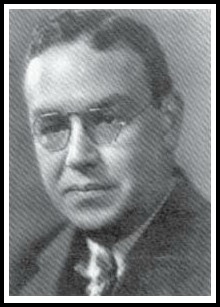 W
WForrest Brisbin Spaulding was an American librarian. He was named in the American Libraries article, "100 of the most important leaders we had in the 20th century" for his contribution to intellectual freedom in writing the Library Bill of Rights. He was a humanitarian who is remembered not only for his contributions to librarianship, but also for the positive influence he had on the communities in which he lived and worked. In a commentary on the play The Not So Quiet Librarian, by Cynthia Mercati, Humanities Iowa writes that "Spaulding's words and his life touched everyone who loved not just books but freedom of expression." While Forrest Spaulding is remembered for his contributions to librarianship, he began his career as a reporter. The State Library of Iowa biography mentions that while he spent some time as director of Peru's libraries and museums in 1920, "he was also a correspondent for the Associated Press. He is noted as saying that his 'efforts to report the news from that country gave him a bitter object lesson in censorship.'"
 W
WThe Stonewall Book Award is a set of three literary awards that annually recognize "exceptional merit relating to the gay/lesbian/bisexual/transgender experience" in English-language books published in the U.S. They are sponsored by the Gay, Lesbian, Bisexual, and Transgender Round Table (GLBTRT) of the American Library Association (ALA) and have been part of the American Library Association awards program, now termed ALA Book, Print & Media Awards, since 1986 as the single Gay Book Award.